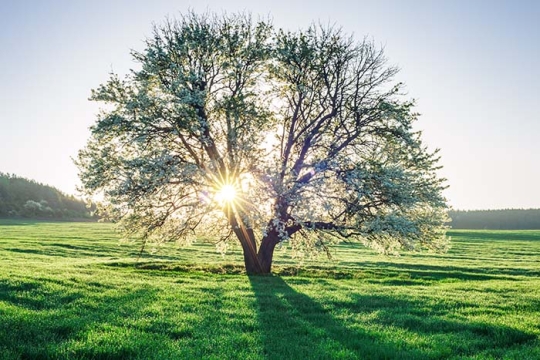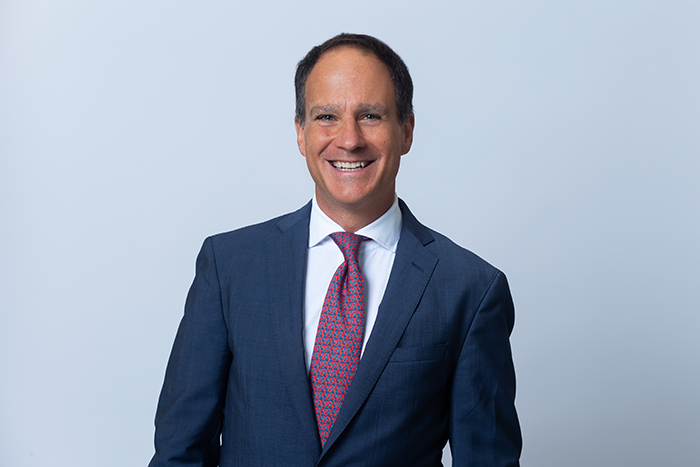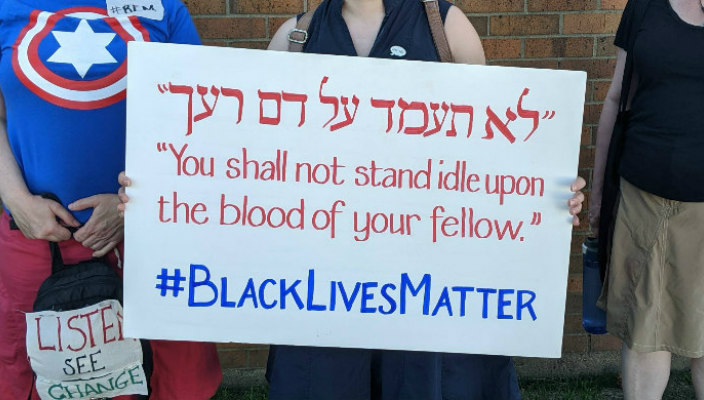
George Floyd was murdered by an officer of the law whose duty was to protect him; he died crying out for his mother, begging to breathe. Ruach Elohim, the Divine Spirit, can be understood as the Breath of Life, a gift from the Creator of All Life. To deny a human being breath is idolatrous – and George Floyd’s murder comes after countless Black and Brown people have similarly been killed and countless others have suffered the brutal systems of racism in our country.
As we said in a statement issued over the weekend, the United States simply cannot achieve the values of “justice for all" to which it aspires until we address ongoing racism in all sectors and levels of society.
After the URJ issued that statement, a group of Reform Jewish college students wrote to our leadership to ask what we plan to do about the scourge of racism that plagues this country – what tangible action items the Reform Movement will share, what actions we ourselves are taking to make this world one of justice, wholeness, and compassion. What we said in response to them, we now share, in part, with you, the rest of our community.
The call to action below challenges our networks to act on local and national levels and includes guidance to support Black and Brown people both within the Jewish community and beyond, both directly and on a systemic level. It includes advocacy for policy change and for confronting racism within our own communities, including our congregations. And it is guided by contributions and feedback from Jews of Color, whose voices and experiences guide the rest of us in our fervent work to confront and put an end to racism.
Here are a few things your congregation can do now, as well as information about upcoming resources, announcements, and other opportunities from the URJ and our partner organizations.
1. Beware a misplaced sense of urgency.
In "Dismantling Racism: A Workbook for Social Change Groups," authors Kenneth Jones and Tema Okun suggest that white-dominant groups consider “how [to] make good decisions in an atmosphere of urgency.” They explain that acting hastily in such moments “makes it difficult to take time to be inclusive, encourage democratic and/or thoughtful decision-making, to think long-term, to consider consequences.”
That means that at this moment in time, white Jews should not rush to make immediate decisions without Jews of Color at the table. What white people think needs to be done now may very well not be the case – and could, in fact, cause unnecessary harm. It is likely that, to some extent, immediate action is indeed needed; with respect to antiracism, though, white people should take cues from leaders of Color, particularly those who have been doing this work for many years and will continue to do so well beyond this moment.
2. Don’t let white emotions dominate spaces.
Jones and Okun explain that often, dominant groups believe “that those with power have a right to emotional and psychological comfort,” and we often take up a lot of space to emote, intellectualize, and seek comfort. In the process, we can cause unintentional harm – although we’re trying to do the exact opposite. (Read about the phenomenon of “white tears” in multiracial settings.)
Now is a time for white people to listen, sit with our discomfort, and take action (as outlined below) in our communities. When we are given the gift of multiracial or cross-racial dialogue, we can practice taking up less space and sitting with our discomfort (including processing our emotions with other white people).
3. Take the URJ’s Audacious Hospitality assessment.
When we formed the URJ Audacious Hospitality Toolkit, we created a congregational self-assessment to help Reform communities gauge their inclusion efforts and achieve their audacious hospitality goals. Inspired through the creation of the JewV’Nation Fellowship’s 2019-2020 Diversity, Equity and Inclusion Cohort, we are developing a new version of the assessment, which will be made widely available within the coming days (and linked in this post). For now, see the following resources in The Tent:
We encourage your community’s leadership to take the assessment individually and as a group (via Zoom, for now) to see how your congregation can better serve all of its community. To ensure that your results accurately reflect your community’s racial diversity, equality, and inclusion (REDI) efforts, make sure the group of people taking the assessment is diverse in regard to race/ethnicity, age, ability status, gender orientation, sexual identity, socioeconomic status, familiarity with congregational life, and other identities.
Self-assessment also means holding accountable the Reform Movement as a whole. To that end, the URJ will, in the coming days and weeks, share details about internal steps that we have recently undertaken (and continue to work on) in our quest to make our congregations, institutions, and organizations whole and holy – including working with a racial diversity, equity, and inclusion (REDI) consultant, implementing REDI trainings for staff, and better melding our audacious hospitality work with the rest of our social justice work.
4. Center the voices of People of Color.
Via the Central Conference pf American Rabbis, the URJ recently shared with Reform rabbis three videos from Reform Jews of Color who shared their experiences and thoughts with our Reform congregations; they are accompanied by tailored guidance about how to best use them to educate, inform, and activate your community.
We also encourage you to listen to and to share episodes of our podcast, Wholly Jewish, whose first season features one-on-one interviews with Jews of Color discussing their experiences, insights, and how their intersectional identities enrich and create a more vibrant Jewish community. You can also read Chris Harrison’s powerful new essay “The Black Jews Are Tired” and JTA’s “‘Believe us’: Black Jews respond to the George Floyd protests, in their own words,” as well as past essays from Jews of Color on a variety of topics relevant to Jewish life.
5. Contact your elected officials.
Across the nation, police officers do vital and heroic work to keep communities safe – yet racism has existed throughout U.S. history, creating systems that have resulted in the disproportionate use of force against people of color.
Today, Black men and boys are 2.5 times more likely to die during a police encounter than their white counterparts. Individuals from minority communities are also more likely to be stopped by police, and those stops are more likely to result in frisks, searches, and arrests than those involving white individuals.
Use the RAC’s action alert to easily contact your members of Congress to urge them to prohibit racial profiling and deem maneuvers that restrict the flow of blood or oxygen to the brain by law enforcement to be federal civil rights violations.
6. Take part in justice efforts led by communities of Color.
We stand in solidarity and action with the NAACP’s #WeAreDoneDying campaign, a multi-pronged effort that reminds us, “As the world faces unprecedented times and new realities during this global pandemic, and incidents of hate and domestic terrorism are perpetuated leading to routine brutalization of African-Americans, the health and safety of [People of Color] are at an unparalleled risk.” The campaign includes a petition calling for justice for George Floyd, as well as action steps related to criminal justice, economic issues, health issues, and voting rights/access.
We also support and encourage participation in The Poor People’s Campaign: A National Call for Moral Revival, an effort to confront systemic racism, shift the moral narrative, impact policies and elections, and build lasting power for poor and impacted people. Join the Reform Movement on June 20 - 21 as we take part in the Poor People’s Campaign’s Mass Poor People’s Assembly & Moral March on Washington. The program will bring together the nation’s largest digital and social media gathering of poor and low-wealth people, moral and religious leaders, and advocates committed to addressing the crisis of systemic racism, poverty, ecological devastation, and more.
7. Engage with experts.
On Wednesday, June 3, the Religious Action Center of Reform Judaism hosted a Facebook Live conversation with Eric K. Ward, executive director of the Western States Center and one of the leading voices on the relationship between hate violence and preserving democratic institutions, governance, and inclusive societies. Watch that video on Facebook now.
8. Join the Reform Movement’s civic engagement campaign.
Our tradition teaches, “A ruler is not to be appointed unless the community is first consulted” (Talmud Brakhot 55). Yet underrepresented communities continue the fight for equal access to the ballot, as voter suppression plagues the U.S. election system and particularly impacts communities of color.
Every Voice, Every Vote is the Reform Jewish Movement’s 2020 civic engagement campaign, a nonpartisan effort to strengthen our democracy by encouraging everyone to participate in the U.S. election and ensuring that Reform Jewish values are represented in the public square. A key tenet of the campaign is working to combat voter suppression.
Decisions that impact racial justice are made at the national, state, and local levels. Educate yourself about the candidates for office up and down the ballot, to ensure that they reflect your views and values. Visit rac.org/cec to learn more and get involved.
9. Encourage your teens to get involved in this work, too.
For more than 80 years, NFTY teens have been turning faith into action. Our movement has a rich history of fighting for justice and standing against oppression; now, our teens continue these traditions as they raise their voices and demand justice. NFTY launched its racial justice campaign in 2017 to to begin to address the issues of systemic racism in North America. Learn more and get involved at nfty.org/racialjustice.
10. Connect with other URJ congregational leaders
The Racial Justice Brit Olam Cohort: Dismantling Systemic Racism is a group in The Tent, the Reform Movement’s communications and collaboration platform, for Reform leaders working to dismantle systemic racism in our society. Join the group to connect with other leaders, share best practices, ask questions, and more.
***
Please know that despite the challenges the URJ faces, our commitment to tikkun olam, the repair of our world, is unwavering. It is who we are and why we exist. When asked why he would risk death by the Roman empire and study Torah, Rabbi Akiva responded that a Jew could no more abstain from Torah study than a fish could live on land. All the more so for Reform Jews, whose Torah – whose very history – is steeped in the struggle for social justice.
Rabbi Abraham Joshua Heschel famously said, “Some are guilty; all are responsible.” Let us take responsibility together.
For more on this important topic, see "Reform Jewish Leadership Statement: Black Lives Matter is a Jewish Value," which includes a list of resources to learn, read, listen, and act.
Related Posts
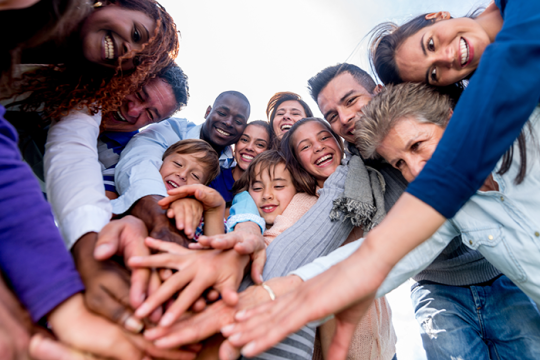
Celebrating the URJ’s 150th Anniversary with New Opportunities and Communities
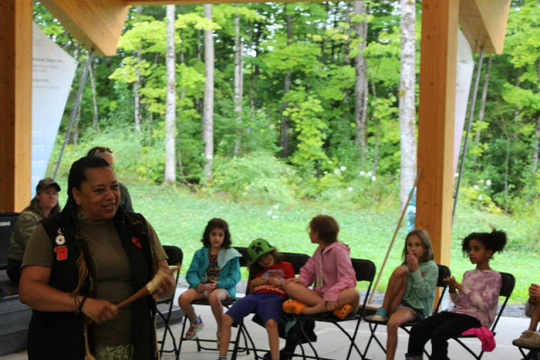
Not Just a Checkbox: Diversity, Equity, & Inclusion Actions at URJ Camp George
